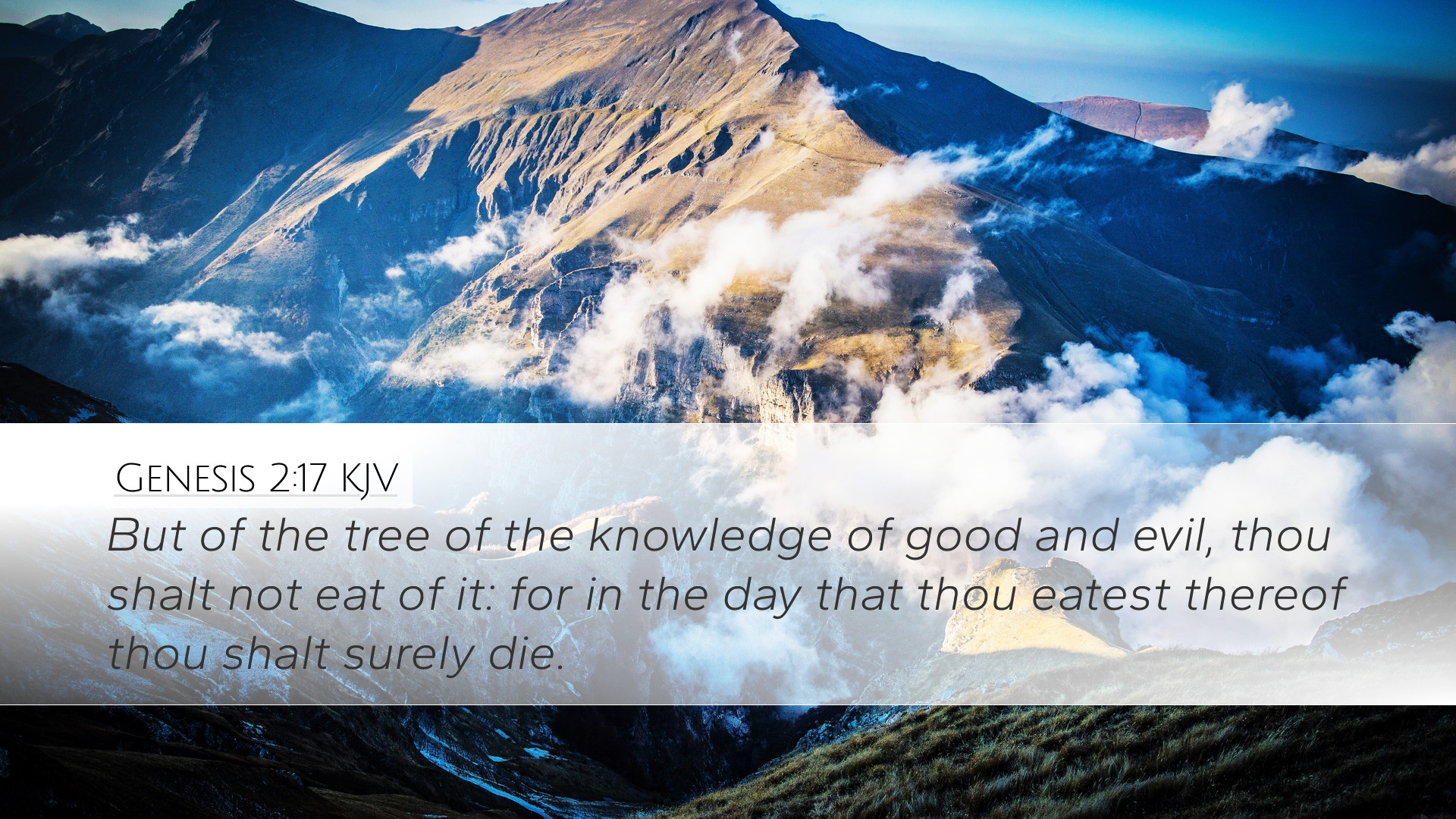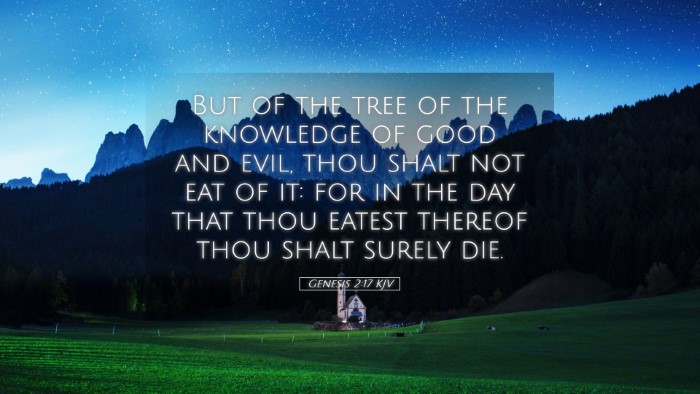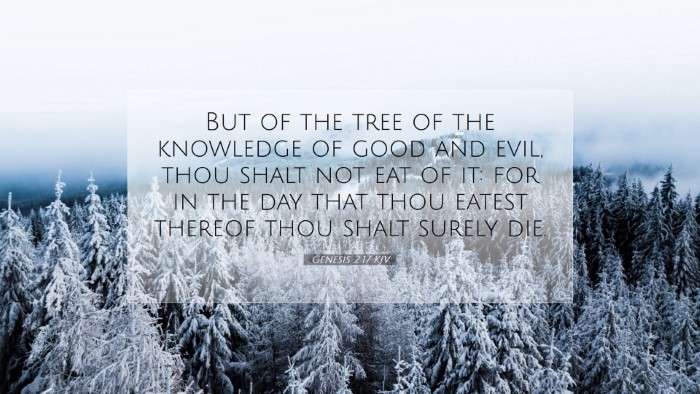Commentary on Genesis 2:17
Verse: "But of the tree of the knowledge of good and evil, thou shalt not eat of it: for in the day that thou eatest thereof thou shalt surely die." (Genesis 2:17)
Introduction
This scripture encapsulates a pivotal moment in the biblical narrative, establishing the divine command that serves as the basis for humanity's moral testing. Understanding this verse is vital for grasping the overarching themes of sin, free will, and God’s covenant with humanity.
The Divine Command
Matthew Henry notes that this command was not arbitrary; it was intended to provide Adam with a clear choice and to set a boundary for his obedience. The stipulation regarding the tree of knowledge hints at God’s authority and the order He established in creation.
Albert Barnes emphasizes the significance of the command, suggesting it served to demonstrate God's sovereignty and the principle of obedience. By restricting Adam from eating of the tree, God allowed him the freedom to choose, which reflects the importance of human agency in the divine plan.
The Tree of Knowledge
Adam was introduced to this unique tree, designated the "tree of the knowledge of good and evil." This labeling indicates that the fruit provided an understanding of moral discernment; however, the act of eating it was forbidden. Adam Clarke discusses how the knowledge acquired through the consumption of the fruit was not merely intellectual but transformative, representing a pivotal departure from the innocent state of humanity.
Consequences of Disobedience
The warning that “thou shalt surely die” underlines the seriousness of the command. This declaration from God highlights the connection between disobedience and death, which serves both spiritual and physical implications.
Matthew Henry reflects on the concept of death in this context, noting that while Adam did not die on the physical level on eating the fruit, the immediate result was spiritual death and separation from God. This spiritual consequence frames the understanding of sin and its pervasive impact on human relationships with God and one another.
Albert Barnes adds that this phrase should not be interpreted solely in a literal sense but also as signifying a broader existential death—deprivation of the divine grace that sustains life and joy. The loss of innocence introduced profound changes in Adam and Eve, leading to the alienation from God and fear of divine judgment.
Insights on Free Will
The command given illustrates the concept of free will that God bestowed upon Adam. Adam Clarke emphasizes the importance of choice in the Edenic setting. The presence of the tree presented an opportunity for Adam to exercise obedience, highlighting God's relationship with humanity as one of genuine love rather than coercion.
Through the prohibition regarding the tree, God provided a framework for moral development. The ability to choose between good and evil was essential for Adam to grow in wisdom; however, it also introduced the potential for sin.
Theological Implications
This verse serves as a theological foundation for understanding sin’s origin. It illustrates the transition from innocence to knowledge, effectively illustrating humanity's fallibility.
Matthew Henry states that this moment marked not only the disobedience of Adam and Eve but also the entrance of sin into the world, which necessitated redemption and brought about the need for a Savior. The consequences of the fall reverberate through all of human history, making it paramount for scholars and theologians to study this verse closely.
Albert Barnes further develops the theme of sin’s universality, positing that Adam’s decision echoes in every human heart as the propensity to choose self over obedience to God. This foundational event underscores the need for divine intervention and grace in the salvific narrative.
Conclusion
Genesis 2:17 is a profound verse with implications that resonate through scripture and into the heart of Christian theology. The command concerning the tree of the knowledge of good and evil reveals not just the nature of God’s sovereign authority but also the complexity of human free will and the dire consequences of disobedience.
Adam Clarke wraps up this analysis, asserting that the lessons gleaned from Genesis 2:17 are not merely historical but vital for contemporary believers. They reflect the ongoing battle against temptation, the importance of obedience to God, and the rich promise of redemption offered through Christ.
In conclusion, this verse invites pastors, students, theologians, and Bible scholars to pursue a deeper understanding of God’s Word, the nature of sin, and the beautiful narrative of redemption that unfolds throughout the Scriptures.


